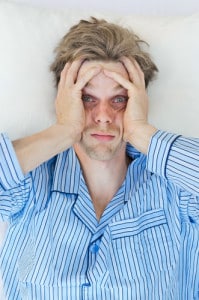 Sleep apnea shows in all different forms – from snoring to abrupt awakenings – but, it impedes on your sleep. Is that why you’re tired? Absolutely – actually, one of the most common symptoms of sleep apnea is consistent sleepiness throughout the day. If this is something you’re experiencing, you may want to visit your dentist as they could help you begin the process to diagnosing your sleep apnea. Don’t lose hope – there are many different treatments to help your sleep disorder, you won’t feel this exhausted forever.
Sleep apnea shows in all different forms – from snoring to abrupt awakenings – but, it impedes on your sleep. Is that why you’re tired? Absolutely – actually, one of the most common symptoms of sleep apnea is consistent sleepiness throughout the day. If this is something you’re experiencing, you may want to visit your dentist as they could help you begin the process to diagnosing your sleep apnea. Don’t lose hope – there are many different treatments to help your sleep disorder, you won’t feel this exhausted forever.
What Are The Symptoms?
There are two different types of sleep apnea; obstructive and central. Both have symptoms that are typically only shown with each of them, however they do also have overlapping symptoms – which is why it can be difficult to determine which type of disorder you have.
Loud Snoring (can be worse with obstructive sleep apnea)
Abrupt Awakenings (usually followed by shortness of breath)
Headaches
Difficulty Staying Asleep
Sleepiness
Irritability
Trouble Paying Attention
What Causes Sleep Apnea?
This is where the main difference between obstructive and central sleep apnea are. Obstructive is caused by the relaxation of your muscles in the back of your throat. When these muscles relax, it causes the airway to narrow making it more difficult to breathe. However, with the lack of air flow, your brain signals your body to awake in order to get an adequate breath.
The central form is caused from an issue with your brain properly transmitting signals to your breathing muscles. This form of sleep disorder is much less common than obstructive, however, it does cause you to stop breathing altogether for a short period of time. This loss of air flow tends to cause trouble for you to stay asleep, get to sleep, or difficulty catching your breath in the middle of the night.
Do you think you have problems with your sleep? Contact your dentist as soon as you can!
